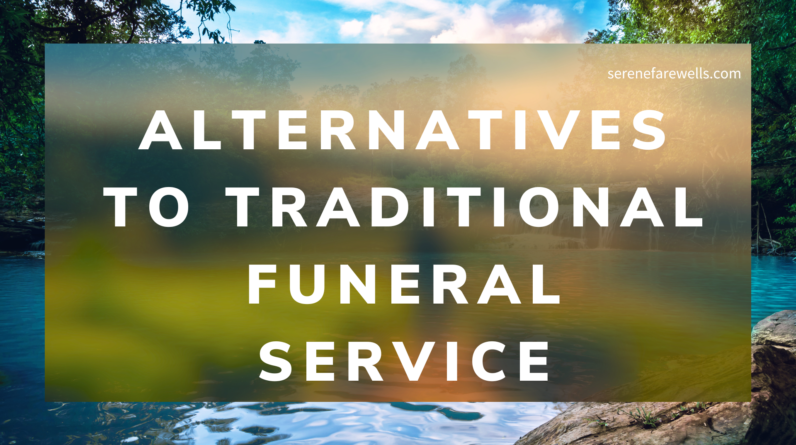
Losing a loved one is undoubtedly a difficult experience, and planning their funeral can add another layer of emotional stress. Whether you find yourself in the unexpected position of having to arrange a funeral, or you are pre-planning for the inevitable, understanding the key factors to consider is crucial. From choosing the right funeral home and handling legal paperwork to making decisions about the service itself, this article will guide you through the important considerations when planning a funeral, helping you honor your loved one in a meaningful and respectful way.
Choosing the Type of Funeral
Traditional Funeral
When it comes to planning a funeral, one of the first decisions you’ll need to make is the type of funeral that best honors your loved one’s memory. A traditional funeral is a popular choice for many families. It typically includes a visitation or wake, followed by a funeral service, and finally, a burial or cremation. This type of funeral often adheres to established religious or cultural customs and rituals. If you value tradition and want to create a meaningful ceremony that reflects your loved one’s life, a traditional funeral may be the right choice for you.
Memorial Service
A memorial service is an alternative option to a traditional funeral. Unlike a traditional funeral, which typically takes place shortly after the passing, a memorial service can be held days or even weeks later. This gives friends and family members who may need to travel the opportunity to attend and pay their respects. A memorial service focuses on celebrating the life of the deceased rather than the physical presence of the body. It often includes speeches, musical tributes, and the sharing of memories. If you prefer a more flexible and personalized approach to the funeral ceremony, a memorial service may be the right choice for you.
Direct Burial or Cremation
Direct burial or cremation is another option to consider when planning a funeral. With a direct burial, the body is buried shortly after death, often without embalming or a public viewing. This option is typically less expensive than a traditional funeral and can be a practical choice for those who prefer a more straightforward and cost-effective approach. Similarly, with direct cremation, the body is cremated shortly after death without a formal funeral service. The ashes can then be kept in an urn, scattered, or used in a variety of other memorialization options. If simplicity and affordability are important factors for you, direct burial or cremation may be suitable choices.
Green or Eco-Friendly Funeral
In recent years, there has been a growing focus on environmentally-friendly practices, even when it comes to funerals. Green or eco-friendly funerals prioritize sustainability and minimize the impact on the environment. These funerals often involve biodegradable caskets or shrouds, natural or conservation burial grounds, and even the use of organic materials for memorialization, such as tree planting. If you or your loved one had a strong commitment to environmental conservation, opting for a green or eco-friendly funeral can be a meaningful way to honor their values.
Determining the Budget
Funeral Costs
When it comes to planning a funeral, one of the most significant considerations is the budget. Funeral costs can vary widely depending on factors such as the type of funeral, location, and personalized elements. It’s important to research and understand the average costs associated with the type of funeral you choose. Costs typically include fees for funeral home services, transportation, embalming, caskets or urns, burial plots or cremation fees, and any additional services or products you may opt for.
Additional Expenses
In addition to the funeral costs, there may be additional expenses to take into account. These can include fees for death certificates, permits, obituary notices, floral arrangements, catering for post-funeral gatherings, and even travel expenses for out-of-town attendees. It’s essential to consider these potential costs when planning the funeral and ensure that you have a comprehensive budget in place.
Financial Assistance Options
If you’re concerned about the financial implications of a funeral, there are several potential assistance options available. Some funeral homes offer payment plans or financing options to help alleviate the immediate burden of payment. Additionally, you may be eligible for financial assistance through veterans’ programs, charitable organizations, or state/federal programs. It’s worth exploring these avenues to determine if you qualify for any financial support to make the funeral planning process more manageable.
Selecting the Right Funeral Home
Researching Local Funeral Homes
Choosing the right funeral home is crucial as they will play a significant role in guiding you through the funeral planning process. Start by researching the local funeral homes in your area. Consider factors such as proximity to your location, their reputation within the community, and the range of services they offer. Reading online reviews and seeking recommendations from friends or family members can also provide valuable insights into the quality of service provided by different funeral homes.
Considering Reputation and Experience
When selecting a funeral home, reputation and experience should be a top priority. Look for a funeral home that has a long-standing presence in the community and a good reputation for providing compassionate and professional services. An experienced funeral home will have the knowledge and expertise to handle all aspects of funeral planning, ensuring that everything runs smoothly.
Visiting the Funeral Home
Once you’ve narrowed down your options, it’s important to visit the funeral home in person. This will give you the opportunity to meet with the staff, assess their professionalism and empathy, and ask any questions you may have. During your visit, take note of the facilities, including the viewing rooms, chapel, and reception areas. Ensure that the atmosphere and surroundings align with your vision for the funeral ceremony and gathering.
Evaluating Facilities and Services
As you evaluate funeral homes, consider the facilities and services they offer. Assess whether they can accommodate your specific needs, such as religious or cultural requirements. Additionally, inquire about their capabilities in terms of transportation, embalming, cremation, and any other specialized services you may require. The funeral home should have the necessary resources and capabilities to meet your expectations, ensuring that your loved one receives the dignified farewell they deserve.
Deciding on Burial or Cremation
Personal Preference
The decision between burial and cremation ultimately comes down to personal preference. Consider what would be most meaningful and respectful to both you and your loved one. Some individuals have strong preferences based on their own beliefs or values, while others leave the decision to their family members. Take the time to discuss this important choice with your loved ones, considering their wishes while also acknowledging that the final decision is ultimately yours.
Religious or Cultural Beliefs
Religious or cultural beliefs often play a significant role in the decision between burial and cremation. Some religions have specific guidelines and traditions regarding funeral practices, so it’s essential to consider these when making the decision. For example, certain religions may require burial within a specific timeframe or prohibit cremation altogether. Take the time to understand your loved one’s religious or cultural beliefs, and ensure that their final wishes align with those practices.
Cremation Considerations
If you’re considering cremation, there are a few additional factors to take into account. First, consider what you would like to do with the cremated remains. Options include keeping them in an urn, scattering them in a meaningful location, or incorporating them into memorial jewelry or artwork. It’s also essential to check state and local laws regarding the scattering or burial of ashes. Some areas have specific regulations in place that you’ll need to follow.
Burial Options
If you choose burial, consider the different burial options available. Traditional casket burials involve the placement of the body in a casket, which is then interred in a cemetery or burial plot. Some cemeteries may have specific requirements or restrictions, so be sure to inquire about these. Additionally, there are alternative burial options such as natural or conservation burial grounds, where the body is laid to rest in a more environmentally-friendly manner.
Planning the Ceremony
Choosing the Venue
The venue for the funeral ceremony is an important consideration. Some families choose to hold the service at the funeral home itself, while others prefer religious institutions such as churches, synagogues, or mosques. Consider whether an indoor or outdoor setting would be most appropriate and meaningful to honor your loved one’s memory. It’s also essential to evaluate the capacity of the venue to ensure it can accommodate all expected attendees.
Selecting a Date and Time
When selecting the date and time for the funeral ceremony, there may be certain factors to consider. Take into account the availability of family members and close friends, particularly those who may need to travel. Additionally, consider any religious or cultural practices that dictate specific days or times for funeral services. By choosing a date and time that is convenient and significant to those involved, you can ensure that as many people as possible can attend and pay their respects.
Arranging for Officiants and Speakers
The presence of officiants and speakers can greatly enhance the funeral ceremony. Consider who would be most appropriate to lead the service, whether it’s a religious leader, a close family member, or a professional celebrant. Take into account the personal connection they had with your loved one, their ability to engage the attendees, and their familiarity with the chosen venue. Additionally, consider if there are any family members or friends who would like to speak or share memories during the service.
Creating a Program
To help guide attendees through the funeral ceremony, creating a program is highly recommended. The program typically includes an order of service, including any religious or cultural elements, readings, music selections, and details about the speakers. It can also include a brief biography or tribute to the deceased. Providing a program ensures that everyone is aware of the schedule and format of the ceremony, allowing them to fully participate and engage in honoring your loved one’s life.
Funeral Services and Rituals
Religious and Cultural Traditions
Religious and cultural traditions often play a significant role in funeral services and rituals. Different religions and cultures have their own unique customs and practices when it comes to honoring the deceased and providing comfort to the grieving family. Whether it’s reciting prayers, performing specific rituals, or observing mourning periods, incorporating these traditions into the funeral ceremony can provide a sense of familiarity, support, and spiritual guidance.
Customizing the Service
While religious and cultural traditions can provide a solid foundation for the funeral service, it’s also important to remember that the ceremony can be customized to reflect the individuality of your loved one. Consider incorporating personal touches such as favorite songs, meaningful readings, or shared memories. You can also create multimedia presentations with photographs or videos that showcase significant moments from your loved one’s life. By adding these personal elements, you can create a unique and heartfelt ceremony that celebrates their life in a personal and authentic way.
Involving Family and Friends
Involving family and friends in the funeral service can be a comforting and healing experience. Consider if there are any specific roles or responsibilities you would like them to take on during the ceremony. This could include serving as pallbearers, offering readings or eulogies, or performing musical tributes. By involving loved ones, you not only honor their relationship with the deceased but also create a sense of community and support during a challenging time.
Including Music, Readings, and Eulogies
Music, readings, and eulogies can play a powerful role in the funeral service, providing comfort and reflection for attendees. Consider selecting music that was meaningful to your loved one or that captures their spirit. You can choose instrumental pieces, hymns, or popular songs that evoke emotions and memories. Similarly, select readings that resonate with the themes of life, love, and loss. Eulogies offer an opportunity for family members or close friends to share personal memories and anecdotes about the deceased, providing a heartfelt tribute that captures their essence.
Funeral Reception and Gathering
Organizing a Post-Funeral Gathering
A funeral reception or gathering provides an opportunity for family and friends to come together, share stories, and offer support. Consider whether you would like to organize a reception immediately following the funeral service or at a later time. Take into account the preferences and needs of attendees, such as dietary restrictions or accessibility requirements. A post-funeral gathering can be held at a family home, a rented venue, or even a local restaurant. It’s an opportunity to continue honoring your loved one’s memory while providing a space for healing and connection.
Selecting a Venue
When selecting a venue for the funeral reception or gathering, consider the number of expected attendees and the desired atmosphere. If you prefer a more intimate setting, a family home or a private room at a restaurant may be suitable. For larger gatherings, consider community centers, event venues, or places of worship that have dedicated spaces for post-funeral gatherings. Additionally, ensure that the venue aligns with any religious or cultural observances you would like to incorporate into the gathering.
Catering and Refreshments
Catering and refreshments are an important consideration when organizing a post-funeral gathering. Reflect on the preferences and tastes of your loved one, and select food and beverages that were meaningful to them. This can include their favorite dishes or traditional foods that hold cultural significance. Consider providing a range of options to accommodate different dietary requirements and preferences. Also, ensure that you have enough seating, utensils, and tableware to accommodate all attendees.
Creating a Sympathy Expression Station
Creating a sympathy expression station can provide attendees with an opportunity to offer their condolences and share their thoughts or memories. This can consist of a designated area where guests can write messages in a guestbook, sign a memorial board or register, or even create handwritten sympathy cards. Consider providing blank cards and pens, as well as pre-printed prompts for those who may find it challenging to express their emotions. This thoughtful gesture allows attendees to actively participate in the grieving process and provides a lasting memento for the family.
Obtaining Necessary Documents
Death Certificate
One of the first documents you’ll need to obtain when planning a funeral is the death certificate. The death certificate serves as an official record of the person’s passing and is required for various legal and administrative purposes. It is typically issued by a medical professional or a certified funeral director. Be sure to request multiple copies of the death certificate, as you’ll need them for tasks such as notifying government authorities, settling the estate, and dealing with financial matters.
Permits and Legal Requirements
Depending on your location, there may be specific permits or legal requirements that need to be fulfilled to proceed with the funeral arrangements. These can include burial permits, cremation authorizations, or other documentation required by local or state authorities. Funeral homes are familiar with these requirements and can guide you through the process of obtaining the necessary permits and meeting legal obligations.
Notifying Government Authorities
It’s important to notify government authorities about the passing of your loved one for various reasons. Social Security Administration, the Department of Veterans Affairs, and other agencies may need to be informed to ensure the smooth transition of benefits or entitlements. Reach out to the appropriate agencies and follow their specific procedures to ensure that you fulfill any obligations and secure any benefits due.
Dealing with Insurance and Benefits
If your loved one had insurance or other benefits, such as retirement plans or pensions, it’s crucial to notify the appropriate organizations promptly. Insurance companies typically require documentation, including the death certificate, to process claims. Contact the insurance providers and other benefit organizations and inquire about their specific requirements and procedures for filing claims. By ensuring that these matters are promptly addressed, you can alleviate any financial burdens on the family and ensure that the necessary benefits are obtained.
Notifying Family and Friends
Creating an Obituary
Creating an obituary is an important way to inform family, friends, and the wider community about the passing of your loved one. It typically includes essential information such as the person’s name, age, date of passing, and surviving family members. You can also include details about the funeral arrangements, charitable requests, or any other pertinent information. Obituaries can be published in local newspapers, posted on online platforms, or shared through social media. Take the time to craft an obituary that captures your loved one’s essence and informs others about the funeral proceedings.
Contacting Close Relatives and Friends
When a loved one passes away, it’s important to inform close relatives and friends as soon as possible. This can be a daunting and emotionally challenging task, so consider enlisting the help of other family members or friends to assist with these notifications. Take into account the preferences of your loved one, such as who they would have wanted to be informed personally, and reach out to these individuals with compassion and sensitivity.
Utilizing Social Media and Online Platforms
In today’s digital age, social media and online platforms can be valuable tools in notifying a broader network of friends and acquaintances about the passing of your loved one. This can be done through a personal post or by creating a dedicated memorial page or group. By sharing memories, funeral details, and a link to the obituary, you can ensure that those who are unable to attend in person can still remain connected and offer their support.
Sending Formal Invitations
Formal invitations can be sent to invite specific individuals to the funeral service, particularly if it is a private or family-only event. These invitations can be personalized and mailed or emailed to the intended recipients. Ensure that the invitations include essential details such as the date, time, and location of the funeral service, as well as any specific instructions or religious observances. By sending formal invitations, you can demonstrate the importance of the person’s presence at the funeral while providing them with the necessary information to attend.
Considerations for Veterans
Military Funeral Honors
If your loved one was a veteran, you may be eligible for military funeral honors. These honors are provided as a mark of respect and gratitude for the veteran’s service. Military funeral honors can include a flag presentation, the playing of Taps, and a rifle salute. To arrange for these honors, reach out to the appropriate military branch or veterans organization. They will guide you through the process and coordinate with the funeral home to ensure that the honors are conducted respectfully and professionally.
Veterans Cemetery Options
Veterans cemeteries are specifically designated burial grounds for those who have served in the military. These cemeteries often offer additional benefits and services, such as perpetual care, grave markers or headstones, and military funeral honors. Research the veterans cemetery options in your area and consider whether this would be a fitting and meaningful resting place for your loved one.
Flag Presentation and Taps
During the funeral service, a flag presentation and the playing of Taps can be powerful tributes to honor the veteran’s service. The flag is typically presented to the next of kin or a designated family member as a symbol of appreciation for the veteran’s sacrifice. Taps, a bugle call, is traditionally played to signal the end of the day and is often performed at military funerals. These ceremonial elements can provide a sense of closure and patriotism, ensuring that the veteran’s service and memory are properly acknowledged.
Benefit Entitlements for Veterans
As a veteran’s family member, it’s important to understand and explore the benefit entitlements available to you. These benefits can include financial assistance for funeral expenses, survivor benefits, educational benefits, and access to healthcare. Reach out to the Department of Veterans Affairs or other veterans’ organizations to determine what benefits may be available and the specific procedures for accessing them. By taking advantage of these entitlements, you can lessen the financial burden associated with the funeral and ensure that you receive the support your loved one earned through their service.
In conclusion, planning a funeral is a significant undertaking, requiring careful consideration of various factors. By choosing the type of funeral, determining the budget, selecting the right funeral home, deciding on burial or cremation, planning the ceremony, understanding funeral services and rituals, organizing a post-funeral gathering, obtaining necessary documents, notifying family and friends, and considering veterans’ considerations, you can ensure that your loved one’s final farewell is a meaningful and respectful tribute to their life and legacy. As you navigate through this challenging time, remember to lean on the support of family and friends, seek guidance from professionals, and allow yourself the time and space to grieve and heal. With careful planning and thoughtful decisions, you can create a funeral ceremony that truly reflects your loved one’s unique journey and provides solace to those left behind.






